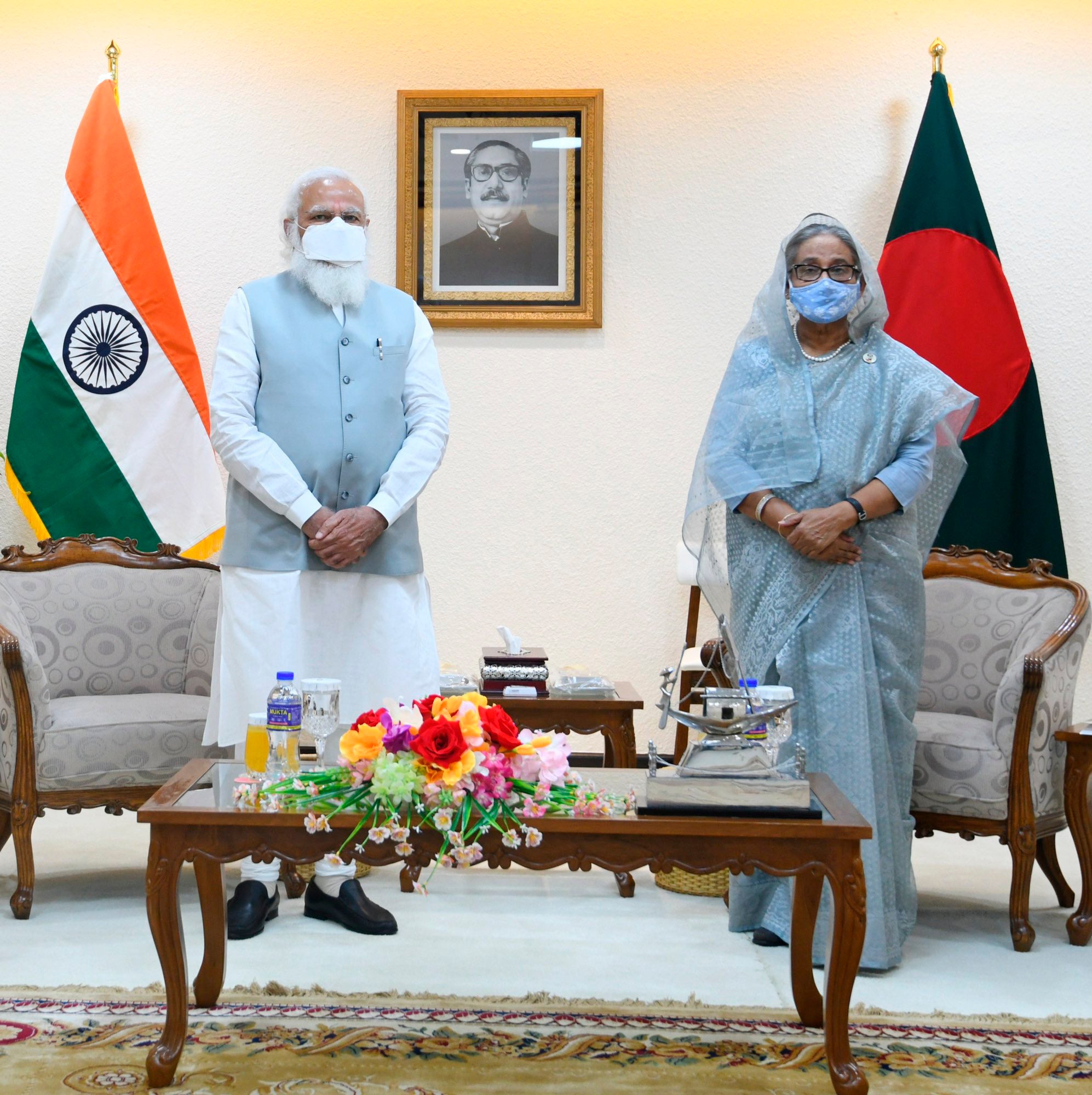India's Modi ends Bangladesh visit that sparked violence
Indian Prime Minister Narendra Modi has concluded his two-day official visit to Bangladesh, a trip that sparked both violent protests and enthusiasm that relations between the two neighbors will continue to grow

Indian Prime Minister Narendra Modi on Saturday concluded his two-day official visit to Bangladesh, a trip that sparked both violent protests and enthusiasm that relations between the two neighbors will continue to grow.
Modi arrived on Friday to join celebrations of Bangladesh's 50th anniversary of independence, but the visit was overshadowed by violent protests in the capital, Dhaka and elsewhere. At least four people were killed and 40 injured in clashes between protesters and security officials.
Critics accuse Modi’s Hindu-nationalist party of stoking religious polarization in India and discriminating against minorities, particularly Muslims. In recent weeks, demonstrators in Muslim-majority Bangladesh had urged the Indian leader not to visit and criticized Prime Minister Sheikh Hasina for inviting him.
The relationship between Bangladesh and India is crucial as they are next door neighbors and India is Bangladesh’s largest trading partner in South Asia. While China is involved with almost all major infrastructure development schemes in Bangladesh, India is also more eager to take up joint projects.
On Saturday, Modi and Hasina signed of five agreements involving trade, disaster management, information technology and sports, Hasina’s Press Secretary Ihsanul Karim told reporters.
They also jointly laid the foundation stones for infrastructure development for power evacuation facilities of an under-construction nuclear power plant in Bangladesh.
Modi also traveled outside Dhaka to pray at two temples. At one, he met the descendants of the founder of a Hindu sect, a visit seen by many as a bid to woo voters back in India as voting kicked off Saturday in several state-level elections, including in West Bengal, which borders Bangladesh.
With an eye on galvanizing Hindu support in the key battleground state, Modi made the trip to the temple, which is sacred to the Matua community back in West Bengal. The Matua sect’s vote is expected to determine the winner of at least seven seats in a close race for control of the state assembly. Hundreds of Matua sect people from India visit the temple every year.
In recent weeks, demonstrators in Bangladesh had chanted anti-India and anti-Modi slogans and urged the visit to be canceled.
The protesters also criticized Hasina for inviting Modi, saying the two countries have many unresolved disputes, including the killing of Bangladeshis by Indian border guards. India says such casualties happen when Bangladeshis are involved in cross-border smuggling and attempt to cross the border illegally.
Many Bangladeshis are also critical of Modi for not signing agreements for water sharing of the Teesta River, a major transboundary river.
On Friday, clashes broke out at Dhaka’s main mosque between groups of demonstrators and police dispersed the crowd by using tear gas and rubber bullets — injuring scores of people, officials and witnesses said.
The Islamist group Hefazat-e-Islam, which has a network of Islamic schools across Bangladesh, announced a nationwide general strike for Sunday, to protest Friday's events, in which its members were blamed for attacking government structures.
Bookmark popover
Removed from bookmarks